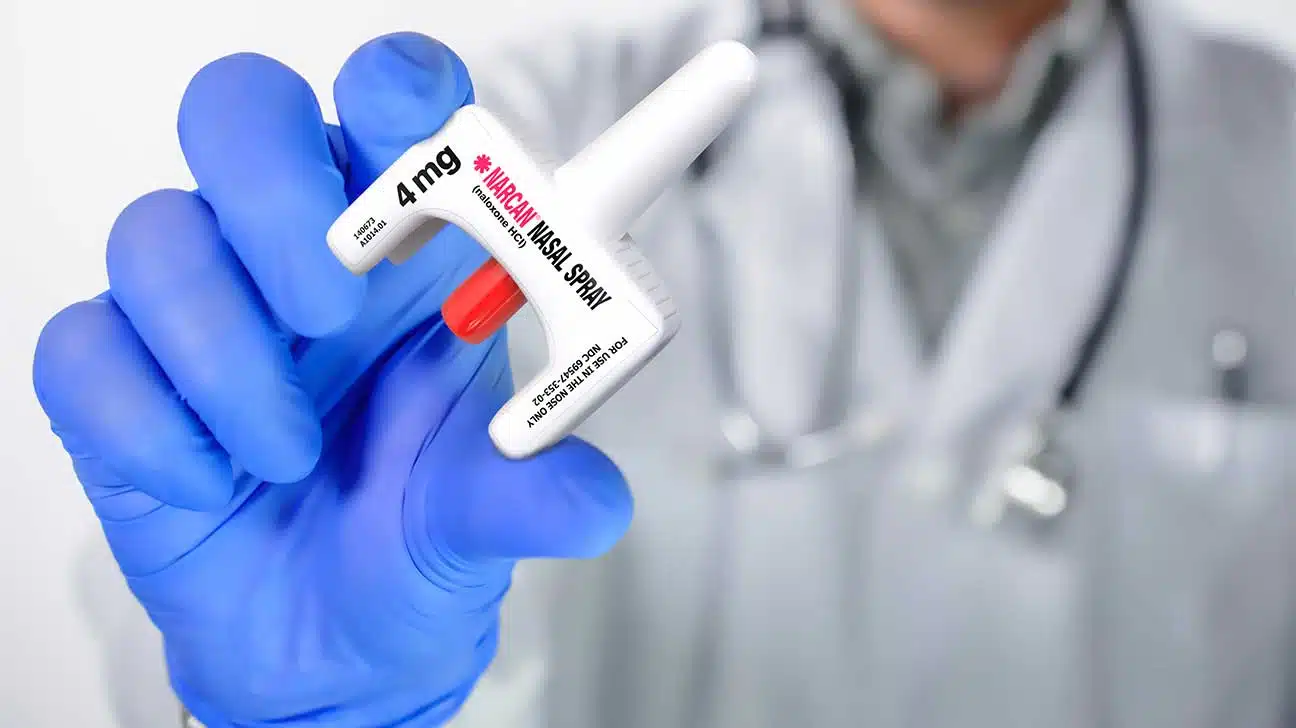
Narcan, also known by its generic name naloxone, is a Food and Drug Administration (FDA)-approved medication that is used to reverse an opioid overdose.
It works by temporarily binding to opioid receptors that block the effects of other opioids such as heroin, fentanyl, and oxycodone.
The Centers for Disease Control and Prevention (CDC) published a study that found nearly 27,000 lives have been saved as a result of Narcan kits.
Top Narcan Myths And Facts
Listed below are some of the most common myths associated with Narcan and effective treatment services for opioid addiction.
Narcan Myth One: Naloxone Availability Encourages Drug Abuse
There is no research to suggest that naloxone leads to increased drug use.
Some studies have shown that Narcan availability decreases the use of opioids, as it causes opioid withdrawal symptoms.
Narcan Myth Two: People Can Abuse Narcan Like Any Other Drug
It is not possible to abuse Narcan like other opioid drugs, as it only works to block the effects of opioids.
Additionally, people cannot take naloxone before drug use to avoid an overdose.
Narcan Myth Three: Naloxone Can Be Self-Administered
When a person is experiencing an opioid drug overdose they are unable to administer naloxone to themselves, as they will be incapacitated.
It is, however, very easy for a bystander to give naloxone by auto-injection, intramuscular injection, or intra-nasal spray.
Narcan Myth Four: Naloxone Is Difficult To Obtain
New laws in many states have made it much easier to obtain Narcan in pharmacies. Some locations can dispense the drug without the need for a separate prescriber.
Narcan Myth Five: Only A Medical Professional Can Administer Narcan
With some basic training, it is easy for a non-medical responder to recognize an overdose and give naloxone to a person who has taken a lethal dose of opioid drugs.
Take-home naloxone kits and training are available at many locations throughout the United States.
Narcan Myth Six: Narcan Is Taking Up Too Much Of The Public’s Funds
In 2021, over 106,000 people died from a drug overdose. Many of these deaths were caused by prescription and illicit opioid drugs and could have been prevented by Narcan.
Substance use disorders and the deadly opioid epidemic are issues that deserve public attention. Over time, treating opioid addiction and preventing deaths can significantly reduce costs.
Narcan Myth Seven: Naloxone Availability Prevents People From Seeking Treatment
There is no evidence to suggest that people battling opioid use disorder will not seek treatment due to the availability of naloxone.
On the contrary, a near-death experience involving a drug overdose may be a catalyst for many people to seek substance abuse treatment immediately.
Narcan Myth Eight: Narcan Makes People Violent When They Wake Up
While one of the most common side effects of Narcan administration in a person is confusion and disorientation, it is rare for someone to become combative and violent.
One way to avoid a violent incident is by letting someone that the overdosing person knows and trusts administer the Narcan.
Signs And Symptoms Of An Opioid Overdose
If you or a loved one are facing an opioid use disorder, you may be wondering how to spot the signs of an opioid overdose.
Opioid overdose symptoms include:
- vomiting
- unconsciousness
- unresponsiveness
- cold and clammy skin
- seizure
- labored breathing
The chances of surviving an opioid overdose are substantially higher when naloxone is administered and emergency medical services are contacted quickly.
Common Addiction Treatment Services
There are several effective and safe opioid use disorder treatment services available at drug rehab centers.
Treatment options may include:
- medical detox
- medication-assisted treatment (MAT)
- behavioral therapies
- dual diagnosis treatment for co-occurring disorders
- aftercare
Find Substance Abuse Treatment Today
Contact our team at AddictionResource.net today for more information on addiction recovery services.
Addiction Resource aims to provide only the most current, accurate information in regards to addiction and addiction treatment, which means we only reference the most credible sources available.
These include peer-reviewed journals, government entities and academic institutions, and leaders in addiction healthcare and advocacy. Learn more about how we safeguard our content by viewing our editorial policy.
- Centers for Disease Control and Prevention (CDC)
https://www.cdc.gov/stopoverdose/naloxone/index.html - European Monitoring Centre for Drugs and Drug Addiction (EMCDDA)
https://www.emcdda.europa.eu/news/2020/facts-and-myths-about-overdose-and-take-home-naloxone-emcdda-publishes-new-resources_en - National Institute on Drug Abuse (NIDA)
https://nida.nih.gov/research-topics/trends-statistics/overdose-death-rates - Substance Abuse and Mental Health Services Administration (SAMHSA)
https://www.samhsa.gov/medications-substance-use-disorders/medications-counseling-related-conditions/naloxone

